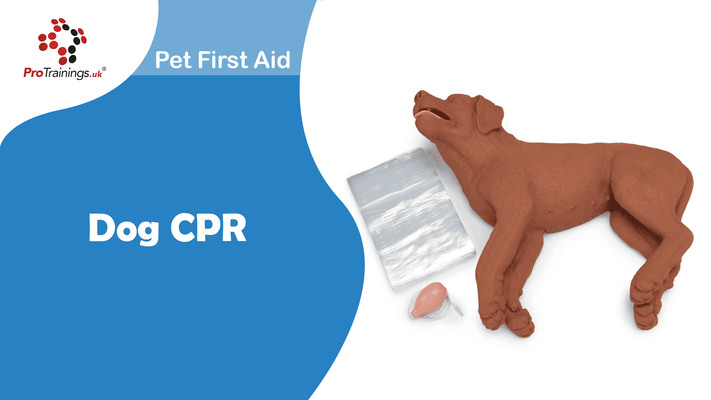Security Dog First Aid Level 2 (VTQ) Training Videos
This course is perfect for anyone who works with security dogs. When working with dogs you should have the knowledge and confidence to be able to jump into action if an emergency were to occur. Start training today to help a dog in need!
Introduction to Security Dog First Aid
To introduce you to your ProTraining Security Dog First Aid course, this section begins with a short introduction and course overview before you meet our vet and learn your role as a first aider, and when veterinary care is required. You will learn how to keep your pet safe in an emergency as well as pet proofing your own home and how to use gloves and the importance of hand hygiene. This section contains specific training on Car Accidents.
Checking a Dog health
This section contains information on not only how to carry out an initial assessment but how to check your dog's general health, this includes taking their pulse and temperature and looking at their gum colour. We look at the different ways animals show pain and how loss of appetite may be an indicator of something wrong.
First Aid Kits and Equipment
The correct kit and equipment is important to any first aider. In this section, we look at Pet First Aid Kits, including collars, sprays, wipes plasters, and powders. You will learn how useful muzzles can be when providing first aid to an injured dog.
CPR, Accidents and First Aid
This section includes breathing and respiratory problems and how to give CPR to a dog before moving on to drowning and near and secondary drowning and it's treatment. You will learn how to deal with Shock and how to treat fractures and spinal injuries, including the safe moving of an injured dog.
Medical Conditions
This section contains information on a number of medical illnesses and conditions. We will look at the different types of bleeding, how to control bleeding, the bandages and dressings available, especially Pet Wrap bandages that do not adhere to the skin or fur, and how to use these, with specific reference to bandaging the ear and tail. Paw problems, including nail and claw injuries, are common in dog's and you will learn how to recognise and treat them. Before moving on to you will learn more about the dog's digestive process and when and why it may be necessary to induce vomiting. We look more into specific illnesses such as diabetes, epilepsy, and bloat, and how to deal with more everyday problems like fleas, ticks, and insect stings.
Different Types and Sizes of Dogs
This section provides specific information on older dogs and Brachycephalic breeds and the specific care they may need.
Summary
Finally, in this section, we will look at how Fireworks and Thunderstorms affect our dogs, Record Keeping requirements for Security Dogs, as well as some tips on Human First Aid. The short course summary provides information on how to complete your training and take the final test.
Course Details
3 hours and 34 minutes
English
Keith Sleightholm
English
Security Dog First Aid Level 2 (VTQ) at a Glance
- Learn how to deal with a first aid emergency including CPR with your security dog
- Course approved by NASDU, the National Security Dog Users Association
- Learn common illnesses that affect dogs and how to identify them
- Learn what to do with common injuries that your dog could have
- Learn more about your dog to keep them safe
- Or take the Advanced Pet First Aid course, our level 3 comprehensive Pet First Aid




























































-01.jpg)









